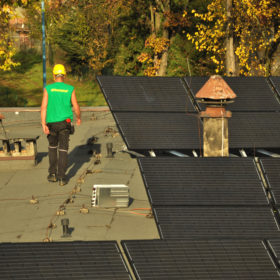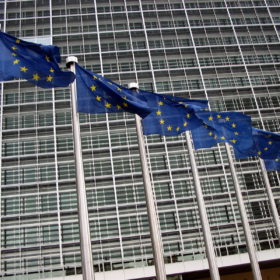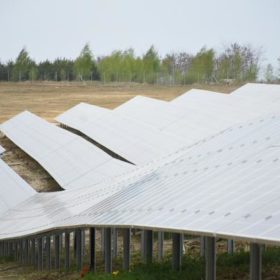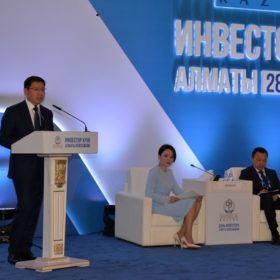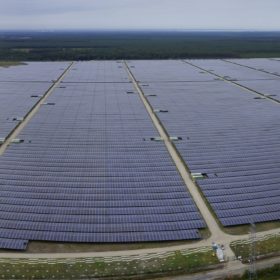Residential and commercial PV drive solar growth in Poland, cumulative capacity nears 200 MW
Around 101 MW of new PV systems was connected to the grid in Poland last year. Of this capacity, about 73 MW came from residential and commercial solar power generators.
Interview: Europe needs big PV manufacturers
Xavier Daval, the president of the French solar association SER-SOLER, spoke with pv magazine about the necessity of creating a large European industrial group specialized in solar module production. Leaving solar manufacturing to China and the United States, Daval said, would make Europe energy dependent for the next decades.
Test operation of solar glas façade completed succesfully
A façade including 75 glass-glass module with a total output of 15 Kw had been installed on a surface area of an office building in Lithuania. After six months of test operation the involved companies expect that the system’s yield could be up to 800 kWh/kW.
Ukrainian government reports growing interest for solar under net metering
Around 3.4 MW of PV systems were installed in Ukraine under its net metering scheme in the first quarter of this year. The scheme was introduced by the Ukrainian government in 2015.
EU energy regulators call on Brussels to remove net metering and priority dispatch for new RES from Winter Package
ACER and CEER have asked the European Commission to take a more market-oriented approach for the Clean Energy Package 2020-2030. The two organizations called on Brussels to remove priority dispatch for existing renewables and to avoid net metering.
Ukraine’s Lviv region sees 10 MW of solar come online
The solar plant was built by local developer LigAgro under Ukraine’s FIT program at a cost of $10 million.
Kazatomprom’s solar manufacturing units to be privatized
Kazakhstan’s state-owned national atomic energy company announced its three solar manufacturing subsidiaries will be auctioned to the highest bidder in the frame of its privatization plan.
Hungary supports net metering PV projects up to 50 kW with 0% loans
The Hungarian Development Bank started a subsidized loan program for renewable energy and energy efficiency in late April. The €350 million program will run through to 2022.
Study: reasonable cost of capital can make solar competitive in all European countries within five years
According to a new report from (ETIP PV), solar is already competitive with the current low wholesale electricity prices in southern European countries, while in Europe’s northern regions PV can become competitive within the coming five years.
Moldova sets solar FIT of $0.10/kWh
A tariff of MDL 1.90 ($0.10)/kWh will be granted for the first time to a 41 kW PV system planned by local developer Opal-Succes SRL. Furthermore, the authority has granted special tariffs to three wind projects totaling 6.5 MW. The country’s new legislation on renewables came into force at the end of March.
